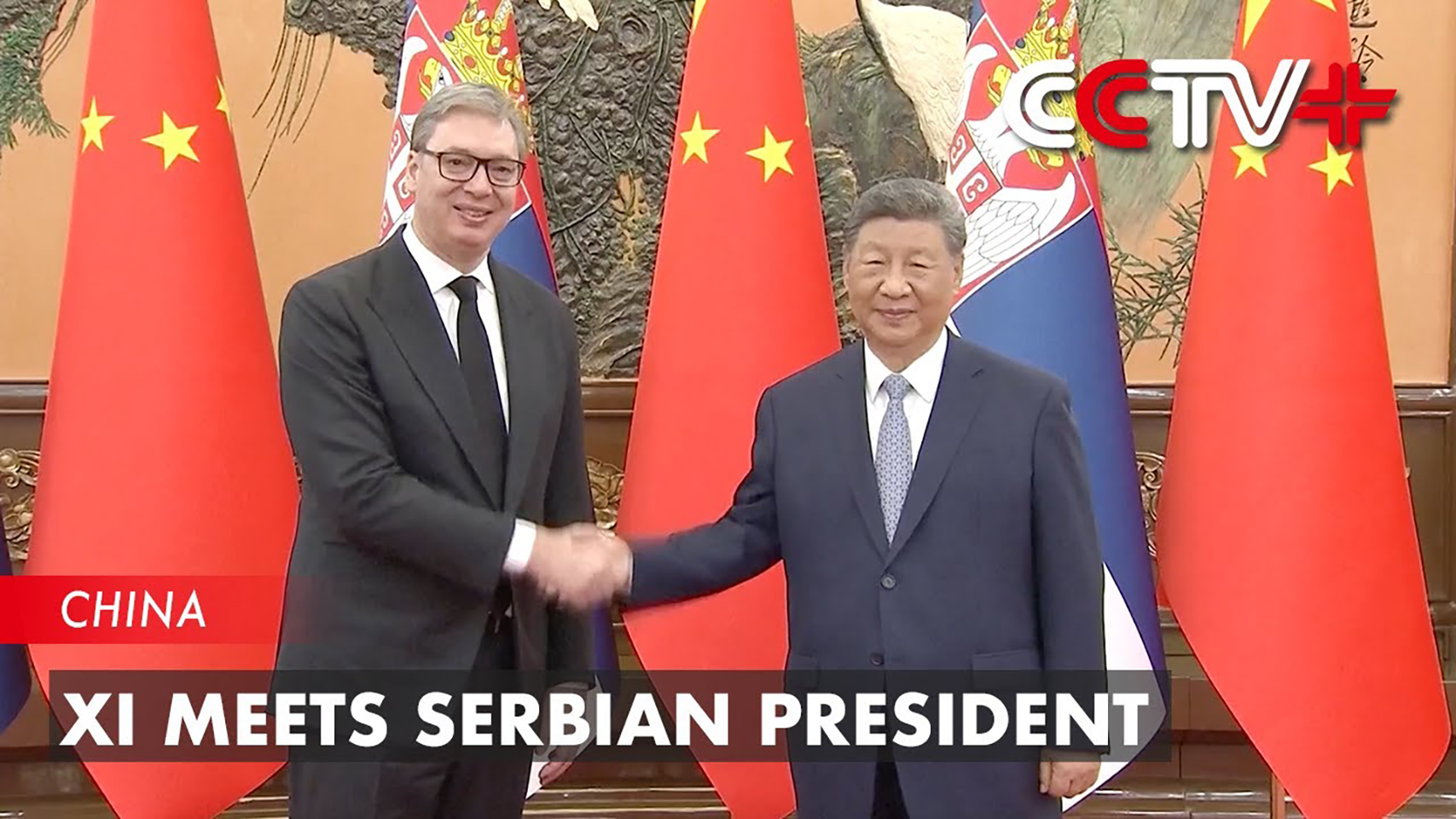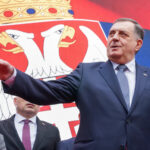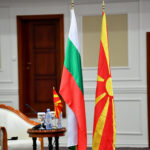- Vučić discussed a new gas supply contract with Putin
President of Serbia Aleksandar Vučić met with President of Russia Vladimir Putin in Beijing on 2 September, on the sidelines of events dedicated to the 80th anniversary of China’s victory over Japan in World War II.
The main goal of the Serbian leader was to obtain the most favorable terms of a new gas contract with Moscow.
The current agreement for the supply of Russian gas to Serbia, temporarily extended in May for only four months, allows Belgrade to import 6.1 million cubic meters of gas per day at a discounted price of €290 per 1,000 cubic meters, which is significantly lower than European market prices. Vučić said he expects a new agreement with Gazprom to be concluded this month. “I begged Putin for a better price and larger volumes,” he said.
Also, according to Vučić, “they spoke about nuclear energy,” in particular about cooperation with Rosatom.
At the beginning of the meeting Vučić stated that “Serbia has been in a difficult situation and under great pressure since the start of the Ukrainian crisis,” but, “despite this,” the country “managed to preserve a principled position,” and “today Serbia is the only country in Europe that has not imposed any sanctions against the Russian Federation.” According to Vučić, Serbia will maintain neutrality in the future.
Putin stated that Russia respects Serbia’s independent course. “We see and respect the independent foreign policy course that Serbia pursues under your leadership,” the Russian president said.
Judging by the overall tone of reports following the talks, problematic topics in Serbian-Russian bilateral relations, such as the supply of Serbian weapons to Ukraine, remained in the past. Serbian media even reported that military-technical cooperation between Belgrade and Moscow was discussed in Beijing, but details of the discussion were not made public.
- Serbia awaits new Chinese investments
President of Serbia Aleksandar Vučić met with the head of the People’s Republic of China, Xi Jinping, in Beijing.
The head of the PRC noted that Serbia is the first European country that, together with China, is building a Global Community of Common Destiny for Mankind, reflecting the special and high-level character of the bilateral relations, and called for strengthening strategic interaction between the two countries.
At the meeting Vučić said that Serbia and China are ironclad friends and that trade between the two countries has never been greater. According to him, he especially thanked the President of China for investments by Chinese companies in Serbia and sent an invitation for new investments in the future.
President of Serbia Aleksandar Vučić said on Wednesday that he used his participation in the military parade in Beijing to see “what would be interesting to purchase for the needs of the Serbian army”. This statement came in the context of a mention of the military agreement of Pristina, Zagreb and Tirana, which, Vučić said, is aimed against Serbia.
It is currently not known precisely what weapons Serbia decided to purchase from China. But previously Belgrade’s focus has been on air-defense systems and strike drones.
- Croatia and Slovenia signed a Declaration on military cooperation
The agreement was signed on 5 September in Zagreb by Croatian Minister of Defence Ivan Anušić and his Slovenian counterpart Borut Sajovic.
“The aim is to improve cooperation between our defence sectors so that they function better and with higher quality,” Minister Anušić said. According to him, the Croatian and Slovenian armies already cooperate very well, and the signing of this declaration has opened “a new chapter in relations”.
Minister Sajovic said that “the world has changed, and this requires further strengthening of cooperation in defence and all other areas”. “Zagreb and Ljubljana bear great responsibility in the Western Balkans, particularly in preserving peace in Kosovo and Bosnia and Herzegovina,” he added.
The Croatian and Slovenian ministers also confirmed decisive support for Ukraine, but stressed that they currently do not plan to send troops.
Asked to compare this agreement with the declaration that Croatia signed with Albania and Kosovo in March this year, Minister Anušić replied that there is “not much difference” between them. He added that Bulgaria could also join the initiative.
***
The signing of the Declaration on military cooperation between Zagreb and Ljubljana provoked a sharp reaction from Belgrade.
The Ministry of Foreign Affairs of Serbia emphasized that “the Balkans remain a sensitive post-conflict region in which the preservation of peace and stability is of decisive importance both for the countries of the region and for Europe as a whole”. For this reason, any insufficiently transparent step that can be interpreted as the creation of military blocs or alliances directed against third parties contributes to rising tensions and deepening divisions, the Serbian MFA said.
President of Serbia Aleksandar Vučić stated that the agreement between Croatia and Slovenia is clearly a hostile action toward the Serbian people and the Serbian state, noting that Belgrade has a negative experience from the 1990s when these two republics united against Serbs and Serbia.
Vučić stressed that he is concerned about the silence of EU and NATO representatives, and he will try to discuss this with NATO Secretary General Mark Rutte.
- Kosovo plans to develop its own armed forces and defence industry
Acting Prime Minister of Kosovo, leader of the “Self-Determination” Movement Albin Kurti, at a meeting of his party in Pristina presented an extensive plan to strengthen the Kosovo Security Force and the defence sector in general.
Currently the Kosovo Security Force is not an army, but in 2018 the authorities in Pristina launched a process to transform this structure into an army.
“For our army over the four years of the next mandate we will allocate a budget of more than one billion euros,” Kurti said.
He talked about plans to develop the military industry, in particular, announcing the development of Kosovo’s own UAVs and the launch of a munitions production plant.
Kurti also promised to create a programme of “comprehensive defence,” which, according to him, will enable every volunteer reservist to receive necessary training and weapons in case of mobilisation, and announced a goal to recruit 1,000 women into the army.
Among the plans announced by the acting head of the Kosovo government is the creation of a joint military unit with the Armed Forces of Albania.
***
A day later the Director of the Office for Kosovo and Metohija of the Government of Serbia, Petar Petković, responded to Kurti’s statements.
“The military alliance of the so-called Kosovo Security Force and the Armed Forces of Albania, the formation of which Albin Kurti announces, is a direct threat to Serbia and the Serbian people” and is a step toward creating a so-called Greater Albania, he said.
He noted that, as is known, under UN Security Council Resolution 1244 the only military formation in Kosovo is the NATO forces in Kosovo, KFOR. Accordingly, any military alliance involving Pristina and the militarisation of the so-called Kosovo Security Force is a violation of that document and an attempt to create a new Kosovo Liberation Army (KLA), the activity of which is prohibited, Petković emphasized.
- Anti-government protests and pro-government gatherings continue in Serbia
Thousands of protesters took part in a demonstration in Novi Sad on the evening of 5 September, demanding early parliamentary elections. Police used tear gas and stun grenades to disperse participants of the protest, stating that the use of force was a response to an attack by a group of masked protesters.
Authorities claimed that demonstrators attacked law-enforcement officers with stones, signal flares and bottles.
On 6 September Minister of Internal Affairs Ivica Dačić reported that 13 police officers were injured and 42 people were detained.
On the evening of Sunday, 7 September, pro-government citizen gatherings “Stop the blockade” were held in more than 100 localities across Serbia, including in Belgrade, Novi Sad, Niš, Subotica, Čačak, Kragujevac and Kraljevo. More than 126,000 people took part.
Formally, the organizer of the pro-government gatherings is the Centre for Social Stability. The actions took place under the slogans “We will not give up Serbia,” “Citizens against blockades”. Participants voiced their outrage at the protests (the blockade of the work of some higher education institutions, the periodic blocking of transport arteries) that have been going on in Serbia for several months.
The protest movement in Serbia began after the collapse of the canopy at the Novi Sad railway station in November last year. Anti-government protesters demand that the authorities hold those responsible for the tragedy accountable and call for early elections.
Citizens who took part in the “Stop the blockades” action, in contrast, expressed their support for President of Serbia Aleksandar Vučić, who joined the participants of the gathering in Borča. In other cities members of the government and other representatives of the authorities joined the actions.
The “anti-blockade” actions also took place on 31 August, when more than 103,000 citizens gathered in almost 100 places; on 20 August in 49 places, when, according to police data, about 33,000 people participated; and also on 23 August, when about 70,000 people gathered at rallies in 71 municipalities and towns.
On 7 September in several places alongside the pro-government citizen gatherings, civic and student actions took place simultaneously, with participants of the anti-government protests. In Čačak and Šabac the situation was tense, and the police were forced to separate the two groups of demonstrators.
On 8 September, the next day after the pro-government action, thousands of students and citizens marched in Belgrade, protesting against the use of force by the police against demonstrators last week in Novi Sad. New protest actions have been announced.



